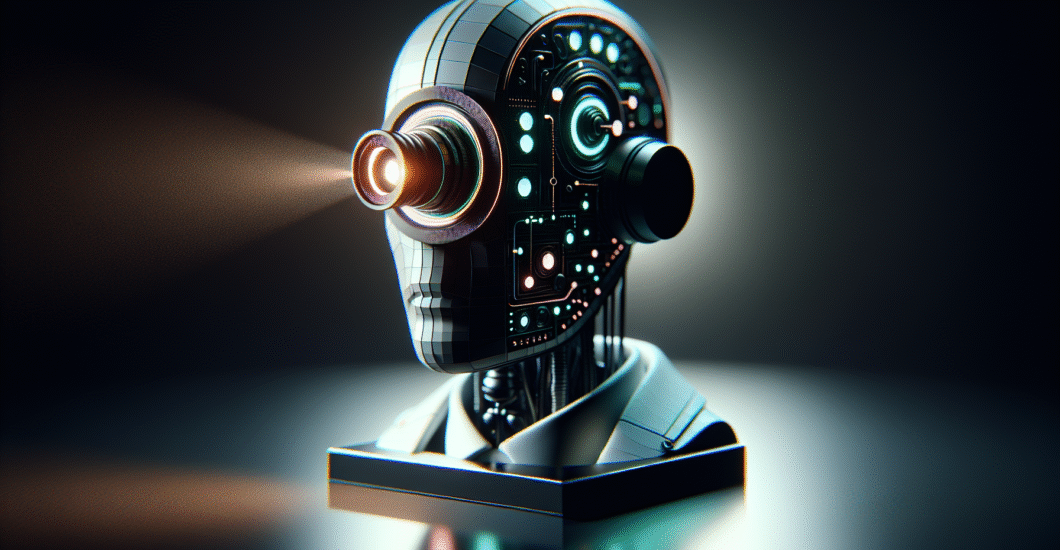One of Europe’s Top AI Researchers Raised a $13M Seed to Crack the ‘Holy Grail’ of Models
Estimated Reading Time: 5 minutes
Key Takeaways:
- Matthias Niessner’s SpAItial secures $13M for AI-driven 3D world creation.
- The goal is to make complex 3D environments easily accessible through text prompts.
- Significant funding will enhance R&D for Spatial Foundation Models.
- The gaming and digital twin markets present vast opportunities for SpAItial.
- Competition includes notable startups like Odyssey and World Labs.
Table of Contents:
The Startup: SpAItial
Founded in Munich, SpAItial is on the cutting edge of what they term “Spatial Foundation Models.” These ambitious models aspire to revolutionize the way we create complex 3D environments, transforming a traditionally cumbersome task into a seamless experience as simple as typing a sentence. This leap reflects a significant advancement compared to current generative AI approaches, like OpenAI’s
DALL-E or
Stable Diffusion, which primarily produce static 2D images. For those interested in the technology shaping our future, this is a thrilling development (
Maginative).
SpAItial’s mission is to democratize 3D world-building, making it accessible not just to specialists but also to non-experts. This would unlock a plethora of possibilities across multiple industries, including gaming, augmented reality (AR) and virtual reality (VR), digital twinning for robotics, eCommerce, and even autonomous systems (
Sifted).
Funding and Investors
The recent seed round, which successfully netted $13 million, was led by Earlybird Venture Capital, notable for backing successful technology firm UiPath. Alongside them, Speedinvest participated, along with a collection of angel investors, including prominent figures such as Robin Rombach (CEO of Black Forest Labs), Victor Riparbelli (CEO of Synthesia), and Steffen Tjerrild (COO of Synthesia). This substantial funding will be directed toward scaling SpAItial’s R&D team, enhancing their first generation of Spatial Foundation Models, and transitioning early prototypes into scalable infrastructure with advanced physics capabilities that would allow commercial pilots across various sectors (
Tech Funding News).
Technical Ambition
At its core, SpAItial’s mission goes beyond mere aesthetics. The company aims to develop 3D environments that are not only visually stunning but also interactive, behaving like real spaces. Niessner himself describes this as a challenge still waiting to be solved in AI research. Achieving this goal necessitates an intricate blend of visual appeal and realistic physics, culminating in environments that invite rich user interaction throughout (
Sifted).
Key Team Members
The strength of SpAItial’s vision can be attributed to its exceptional team. Matthias Niessner boasts a rich pedigree, having co-founded Synthesia, a company currently valued at $2.1 billion, and serving as a full professor at the Technical University of Munich. His expertise in 3D AI modeling is unparalleled. Supporting him are key players like Ricardo Martin-Brualla, a former engineer at Google with hands-on experience in the Beam 3D teleconferencing platform, and David Novotny, who previously led the text-to-3D asset generation project at Meta (
Sifted).
Market Context and Applications
The potential market applications for SpAItial’s innovations are staggering. The global gaming sector, projected to skyrocket to $655.77 billion by 2030, showcases a strong demand for tools that simplify or automate 3D world creation (
Tech Funding News). Moreover, the growing field of digital twins, particularly in robotics and industrial applications, represents another multibillion-dollar opportunity. Predictions suggest that this market will reach an astounding $219.6 billion by 2033, opening doors for SpAItial to develop foundational models versatile enough for a wide range of commercial use-cases that span from entertainment to simulation and eCommerce (
Tech Funding News).
Competition
As with any emergent technology, competition is fierce. SpAItial finds itself in a rapidly evolving landscape, facing rivals such as Odyssey, a San Francisco-based startup focused on AI-powered video generation for film, and World Labs, which has already reached a valuation exceeding $1 billion and actively develops similar 3D generation technologies under the stewardship of Stanford professor Dei-Dei Li (
Sifted).
Current Progress
SpAItial is still in the early stages of its journey. Recently emerging from stealth mode, the company has already made waves with a teaser video showcasing their innovative text-to-3D room generation. This early glimpse captures not only potential customers’ attention but has sparked considerable industry interest even before the company launches a public-facing product (
Sifted). The company’s immediate roadmap includes expanding its team to include experts in AI, graphics, and 3D systems to accelerate the development of their next-generation 3D AI models (
Tech Funding News).
Conclusion
The successful $13 million seed round for SpAItial is not mere happenstance; it reflects both investor confidence and the urgent significance of their mission to decode the “holy grail” of AI. By turning complex, interactive 3D environments from text into a reality, SpAItial is poised to revolutionize how digital spaces are constructed and navigated. With a world-class team leading the charge and an ambitious technical vision at the forefront, this startup stands at the cusp of a transformative era in the AI landscape.
As SpAItial navigates its early development stages and strives to make waves in a rapidly growing competitive field, all eyes will be keenly observing how it reshapes the future of digital world-building. For those intrigued by the evolving AI frontier and the potential applications within your industry, now is the perfect time to consider how such advancements could be leveraged in your own operations. Explore the services
VALIDIUM can offer as we chart this exhilarating AI journey together. Connect with us on
LinkedIn to learn more!


